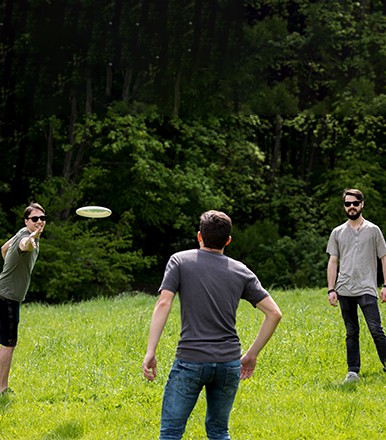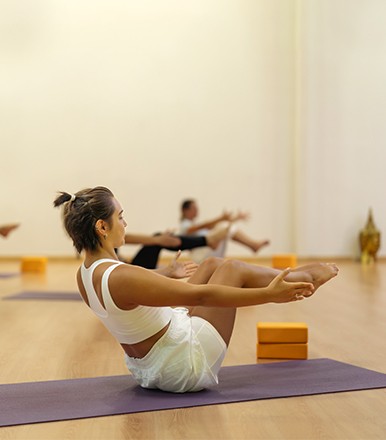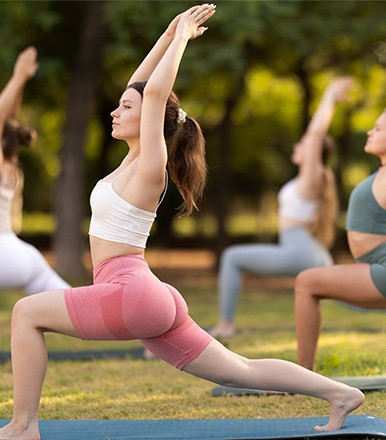Starting your day with a walk sets a positive tone that can carry through your entire day. This simple habit takes just 20-30 minutes yet delivers remarkable benefits for mood regulation and anxiety reduction. While many focus on walking primarily for physical health, its mental health benefits might actually be even more significant.
1. Boosts the Release of Mood-Lifting Hormones

The human brain has evolved a sophisticated chemical reward system, and walking activates this system in multiple ways:
Endorphins: These natural compounds are similar to opiates in their ability to reduce pain and create feelings of wellbeing. A morning walk triggers their release without the intensity required from running or high-impact exercise.
Serotonin: Often called the "happiness molecule," serotonin regulates mood, appetite, and sleep. Morning sunlight exposure while walking helps boost serotonin production, creating a natural antidepressant effect.
Dopamine: This neurotransmitter drives the brain's reward system. The accomplishment of completing a morning walk, especially when it becomes a habit, triggers dopamine release that reinforces the behavior while improving mood.
BDNF (Brain-Derived Neurotrophic Factor): This protein acts like fertilizer for the brain, supporting neural health and growth. Physical activity increases BDNF levels, which has been linked to improved mood and decreased anxiety.
Dr. Michael Craig Miller from Harvard Medical School notes that walking appears to stimulate the brain's release of endorphins in a sustainable, gentle way that's particularly beneficial for those dealing with mood disorders or anxiety. Unlike intense exercise that might feel overwhelming to someone already struggling with mental health challenges, a morning walk provides these benefits without adding stress to the system.
Regular morning walkers often describe experiencing what some call a "walker's high"—a gentler version of the runner's high that produces feelings of calm optimism that last for hours.
2. Reduces Cortisol Levels (Stress Hormone)
Cortisol, often called the stress hormone, follows a natural daily rhythm. It typically peaks about 30-45 minutes after waking (known as the Cortisol Awakening Response) and then gradually decreases throughout the day. However, chronic stress can disrupt this pattern, leading to consistently elevated cortisol levels that contribute to anxiety.
Morning walks help regulate cortisol in several ways:
Healthy Cortisol Pattern: Moderate exercise helps normalize the cortisol curve, ensuring it rises appropriately in the morning and decreases properly throughout the day.
Stress Buffer: A morning walk creates a transition period between waking and engaging with daily stressors like emails, news, and work demands.
Nature Exposure: Walking outdoors, especially in green spaces, has been shown to lower cortisol levels more effectively than indoor exercise.
Deep Breathing: The natural deeper breathing that occurs during walking helps activate the parasympathetic nervous system, which counteracts the stress response.
Research from the University of California found that participants who engaged in a 30-minute morning walk showed lower cortisol responses to stressful tasks later in the day compared to non-walkers. This suggests that a morning walk doesn't just temporarily reduce stress—it actually builds resilience against stressors encountered throughout the day.
3. Enhances Mindfulness and Mental Clarity

The rhythmic nature of walking creates ideal conditions for mindfulness practice and improved mental clarity:
Moving Meditation: Walking serves as a form of moving meditation that's often more accessible than seated meditation for beginners or those with racing thoughts.
Thought Processing: The bilateral stimulation of walking (left-right-left-right) appears to help the brain process emotional content more effectively, similar to techniques used in certain trauma therapies.
Reduced Rumination: Physical movement interrupts cycles of repetitive negative thinking by engaging the body and shifting focus externally.
Solution Finding: Many people report that solutions to problems often arise spontaneously during walks, as the mild physical activity creates ideal conditions for creative thinking.
Walking engages your body just enough to free your mind from fixation on problems. Cognitive scientists describe this as creating the perfect balance between focused and diffuse thinking modes.
Morning walks are particularly effective for mental clarity because they occur before the accumulation of the day's mental clutter. Many writers, artists, and business leaders throughout history have used morning walks specifically for this purpose.
4. Regulates Your Sleep-Wake Cycle

Our bodies operate on a 24-hour cycle called the circadian rhythm, which influences hormone release, body temperature, and sleep patterns. Morning walks help synchronize this internal clock:
Light Exposure: Morning sunlight suppresses melatonin (the sleep hormone) and signals to your brain that it's time to be alert and awake.
Temperature Regulation: Walking raises your core body temperature slightly, and this natural rise and fall helps strengthen circadian cues.
Consistent Timing: Walking at approximately the same time each morning helps establish a stronger circadian pattern overall.
Melatonin Production: Proper morning light exposure leads to more appropriate melatonin release at night, improving sleep quality.
Dr. Phyllis Zee, Chief of Sleep Medicine at Northwestern University, explains that getting 30-60 minutes of morning light exposure dramatically improves nighttime sleep quality. Her research shows that morning light exposure can help people fall asleep about 83 minutes earlier and experience deeper sleep phases.
While an evening walk offers different benefits like aiding digestion and helping transition from work to relaxation, it doesn't provide the same circadian rhythm benefits as a morning walk with natural light exposure.
5. Encourages Routine and Discipline
The psychological benefits of establishing a morning walk routine extend beyond the physical activity itself:
Accomplishment Mindset: Beginning your day by completing an intentional activity creates a sense of accomplishment that can cascade into other positive behaviors.
Decision Fatigue Reduction: When morning walks become habitual, they reduce the mental energy spent on deciding whether to exercise.
Keystone Habit: In behavioral science, certain habits tend to create a domino effect of other positive changes. Morning walks often function as such a "keystone habit."
Self-Efficacy: Consistently maintaining a walking practice builds confidence in your ability to commit to positive change.
A study published in the British Journal of Health Psychology found that participants who successfully established a morning exercise routine showed improved self-regulation in other areas of life, including dietary choices, productivity, and stress management.
This structured start contrasts with the relaxation focus many seek from a benefits of walking after dinner, which serves a different but complementary purpose in a daily wellness routine.
6. Promotes Social Connection (If Walking With Others)

Walking with companions adds social dimensions to the already substantial benefits:
Oxytocin Release: Social interaction during walking triggers oxytocin release, a hormone that promotes bonding and reduces anxiety.
Natural Conversation: Walking side-by-side creates a low-pressure environment for conversation without the intensity of face-to-face interaction.
Shared Experience: Experiencing nature, weather changes, and seasonal shifts together creates connection through shared observations.
Accountability: Walking partners provide gentle accountability that helps maintain the habit during times when motivation might waver.
Research from the University of Oxford suggests that synchronous movement—like walking together at the same pace—increases pain tolerance, positive emotions, and feelings of social connection among participants.
Even walking in neighborhoods where you simply exchange greetings with other morning walkers can reduce feelings of isolation. These brief connections provide what sociologists call "weak ties"—casual relationships that still contribute significantly to wellbeing and community feeling.
7. Provides Perspective and Connection to Nature
A morning walk, particularly in natural settings or even tree-lined streets, offers unique psychological benefits:
Awe Experiences: Morning light, dew-covered landscapes, and dawn wildlife activity can trigger feelings of awe that research shows reduce stress and increase wellbeing.
Biophilia Effect: Humans have an innate connection to nature that, when activated, reduces stress hormones and improves mood.
Expanded Perspective: Seeing open horizons and natural landscapes helps shift thinking from narrow concerns to broader perspective.
Sensory Engagement: The sounds, smells, and tactile experiences of outdoor morning walks engage multiple senses, creating a natural form of grounding for anxious minds.
Studies from the University of Michigan have shown that nature walks improve memory and attention by up to 20% compared to urban walks. Researchers believe this occurs because natural environments engage our attention in a gentle, restorative way rather than the demanding, directed attention required in urban environments.
This connection to nature distinguishes a morning walk from treadmill walking or indoor exercise, providing mental health benefits that extend beyond physical movement alone.
Conclusion
A morning walk combines multiple science-backed approaches to mood improvement and anxiety reduction in one simple, accessible package. By incorporating this habit into your daily routine, you're not just moving your body—you're setting up your entire day for better mental health through hormone regulation, stress reduction, and natural mindfulness. Unlike more complex wellness practices, walking requires minimal equipment and can be adapted to nearly any fitness level.Check out Hello Fitness Magazine. There is never a wrong time to go on a fitness quest. Contact us and allow us to assist you in leading a better lifestyle. Follow us on Instagram. We share the best Health & Fitness related Articles for information based on healthy eating, health and fitness recommendations, health problems and their solutions, human body fitness, and much more.














